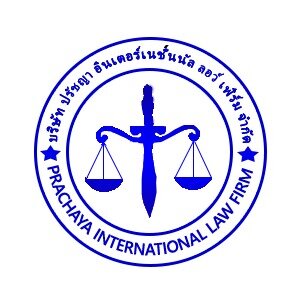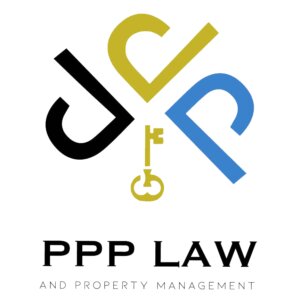Best Divorce & Separation Lawyers in Huai Khwang
Share your needs with us, get contacted by law firms.
Free. Takes 2 min.
Free Guide to Hiring a Family Lawyer
List of the best lawyers in Huai Khwang, Thailand
Thailand Divorce & Separation Legal Questions answered by Lawyers
Browse our 10 legal questions about Divorce & Separation in Thailand and read the lawyer answers, or ask your own questions for free.
- Divorce document
- Hi I need a simple uncontested divorce settlement agreement written up. It's very simple 1. I keep my condo 100 percent as was pre marital. 2. She can live my condo rent and maintenance free for two years from date of divorce. 3. We don't owe each other any money.... Read more →
-
Lawyer answer by KSN Bangkok Co., Ltd.
Hi, we can certainly assist you with drafting a simple uncontested divorce settlement agreement, based on the terms you’ve outlined. Our fee for this service starts from THB 20,000, depending on the complexity and any additional legal details that may...
Read full answer - Moving out of the house before a divorce trial
- Can I move out of my wife's house before a divorce trial ?
-
Lawyer answer by GPS Legal
GPS Legal has extensive experience in Family Law and matters of divorce. While we would want to better understand the details behind the question, the basic answer is yes you can move out of your wife’s house before a divorce...
Read full answer - Divorce
- Can I divorce my Thai wife without her help,it's uncontested,no claims
-
Lawyer answer by Mahanakorn Partners Group Co., Ltd
Dear Sir,Thank you for reaching out to us with your inquiry regarding divorce in Thailand. We appreciate your trust in our expertise, and we would be delighted to assist you on the matter.In Thailand, uncontested divorces, where both parties are...
Read full answer
Thailand Divorce & Separation Legal Articles
Browse our 3 legal articles about Divorce & Separation in Thailand written by expert lawyers.
- How to Protect Your Property After Going Through a Divorce in Thailand
- Understanding how to protect your assets and the laws surrounding divorce is vital as a foreigner in Thailand because in the event of a separation from your Thai spouse, you are going in at a disadvantage. Thai law typically favors Thai nationals over foreigners, so having the right knowledge and... Read more →
- How To Get Divorced In Thailand
- Divorce is a major legal process in Thailand comprising several steps. It requires meticulous documentation and adherence to strict laws and often involves complex grounds.There are two types of divorce in Thailand: uncontested and contested divorce.What is an Uncontested Divorce?An uncontested divorce is also known as an “administrative divorce.” This... Read more →
- How to Find a Divorce Lawyer in Thailand
- Divorce is a difficult and emotionally taxing procedure that may be made even more difficult when it takes place abroad, such as may be the case in Thailand. Anyone may feel overwhelmed by the legal complexities, cultural variances, and other divorce-related issues. But with the right assistance, you may locate... Read more →
About Divorce & Separation Law in Huai Khwang, Thailand
Divorce and separation are significant legal matters faced by couples in Huai Khwang, one of Bangkok's prominent districts. Thai law recognizes both administrative and court divorce processes, with various grounds and procedures depending on the specific circumstances of each marriage. Whether you are a Thai national or a foreigner married in Thailand, understanding your legal rights and options is crucial to ensuring a smooth separation. In Huai Khwang, local authorities and family courts play pivotal roles, and navigating the legal landscape can be complex without specialized knowledge.
Why You May Need a Lawyer
There are many situations in which seeking legal advice or representation during a divorce or separation is essential. Disputes over child custody, division of marital assets, alimony, or mutual agreements are common causes for conflict. If one spouse is uncooperative or resides overseas, the process can become even more complicated. Language barriers, unfamiliarity with Thai official procedures, and concerns about fair treatment further necessitate expert legal assistance. Lawyers can ensure your documents are correctly prepared, your interests are fully protected, and you comply with all legal requirements specific to Huai Khwang and Thailand in general.
Local Laws Overview
Thai divorce law applies equally in Huai Khwang and throughout the country, but the convenience of accessing legal and governmental offices in this district can be an advantage. Divorces can be administrative (mutual agreement at the local district office) or judicial (if contested or if there are children and disputes). Key aspects include:
- Bilateral divorces (where both parties agree) can be granted at the Huai Khwang District Office if registered in Thailand.
- Contested divorces require a court process and must be based on recognized legal grounds such as adultery, abandonment, or abuse.
- Division of marital property follows the regime of community property: everything acquired after marriage is divided equally unless a prenuptial agreement states otherwise.
- Child custody is generally settled in the child's best interest. Both Thai citizens and foreign nationals may apply, but specific requirements may apply to foreigners.
- Spousal support (alimony) may be granted in contested divorces if one spouse is determined to be at fault or significantly disadvantaged.
- All divorce agreements and settlements must be approved and registered by the relevant government authority for legal validity.
Frequently Asked Questions
Can I file for divorce in Huai Khwang if my marriage was registered elsewhere in Thailand?
If your marriage was registered in Thailand, you can typically file for divorce at any district office, including Huai Khwang, as long as both parties are present and consent.
What if my spouse does not agree to the divorce?
If there is no mutual agreement, you must file a contested divorce case in the family court and prove statutory grounds such as infidelity, abuse, or abandonment.
Is it possible for foreigners to divorce in Huai Khwang?
Yes, as long as the marriage was registered in Thailand and both parties meet residency or presence requirements, foreigners can proceed with divorce in Huai Khwang. Some documentation may need translation and legalization.
What documents are required for an administrative divorce?
Both parties will need their Thai identification cards or passports, marriage certificate, and house registration documents. Translations may be required for foreign documents.
How is child custody determined in a divorce?
The court or authorities will consider the best interests of the child, parental suitability, child’s wishes (if old enough), and each parent's circumstances before making a custody decision.
Do I need a lawyer for a simple, uncontested divorce?
While it is not legally required, a lawyer is helpful to ensure that all legalities are properly handled and your rights are protected, especially regarding the division of property or child arrangements.
Can assets acquired before marriage be divided?
Only assets acquired during marriage are considered marital property and subject to division, unless otherwise agreed in a valid prenuptial contract. Personal property from before marriage remains with the original owner.
How long does the divorce process take?
An uncontested administrative divorce can be completed within a day at the district office. Contested divorces through court can take several months or more, depending on complexity.
Will the divorce be recognized in my home country?
This depends on your country’s specific rules. Many nations recognize Thai divorces if all legal processes are followed. You may need legal translations and to notify your embassy for validation.
What if we have children and cannot agree on custody?
If parents cannot reach an agreement, a family court in Huai Khwang will decide based on the best interests of the child, typically allowing both parents to present evidence and arguments.
Additional Resources
For those seeking further guidance or support regarding divorce and separation in Huai Khwang, several local and national resources are available:
- Huai Khwang District Office - for administrative divorces and registration services
- Bangkok Family Court - handles contested divorces and child custody disputes
- Ministry of Justice Thailand - provides information on legal rights, court locations, and family law
- Thai Bar Association - offers legal referrals and resources for both Thai citizens and foreigners
- Women and Children’s Rights Foundation - support for vulnerable parties, including counseling
Next Steps
If you are considering divorce or separation in Huai Khwang, it is advisable to:
- Collect all relevant marriage, divorce, and personal documents
- Schedule a consultation with a qualified divorce lawyer familiar with Thai law and local court procedures
- Consider mediation if both parties are open to amicable settlement, particularly regarding children or property
- File necessary paperwork with the Huai Khwang District Office or Family Court
- Follow through with any court orders, settlements, and registration to ensure your divorce is legally recognized
Professional legal assistance can help you navigate this challenging process and ensure the best possible outcome for you and your family.
Lawzana helps you find the best lawyers and law firms in Huai Khwang through a curated and pre-screened list of qualified legal professionals. Our platform offers rankings and detailed profiles of attorneys and law firms, allowing you to compare based on practice areas, including Divorce & Separation, experience, and client feedback.
Each profile includes a description of the firm's areas of practice, client reviews, team members and partners, year of establishment, spoken languages, office locations, contact information, social media presence, and any published articles or resources. Most firms on our platform speak English and are experienced in both local and international legal matters.
Get a quote from top-rated law firms in Huai Khwang, Thailand — quickly, securely, and without unnecessary hassle.
Disclaimer:
The information provided on this page is for general informational purposes only and does not constitute legal advice. While we strive to ensure the accuracy and relevance of the content, legal information may change over time, and interpretations of the law can vary. You should always consult with a qualified legal professional for advice specific to your situation.
We disclaim all liability for actions taken or not taken based on the content of this page. If you believe any information is incorrect or outdated, please contact us, and we will review and update it where appropriate.









